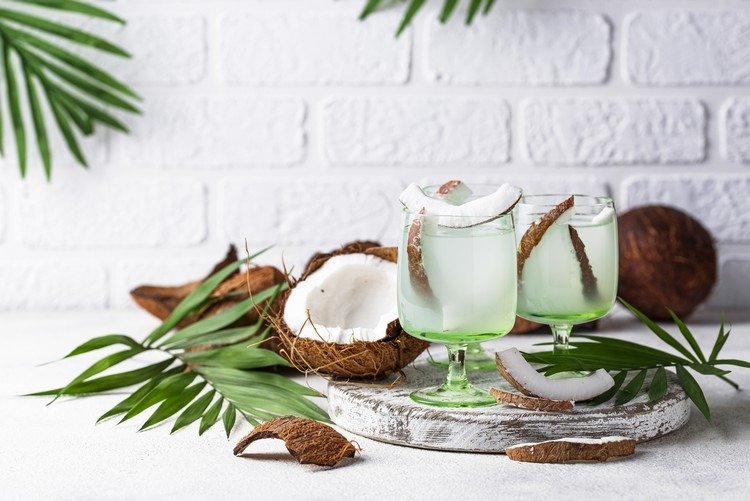Rich in carbs and electrolytes like potassium, sodium and magnesium, coconut water is a great way to stay cool and hydrated during the heat wave. Particularly valued for its ability to maintain muscle and bone function, this refreshing liquid is not at all without precautions. In the current article, we shall explain the potential health hazards in case of excessive coconut water consumption.
What are the Potential Risks of Excessive Coconut Water Consumption?
Indispensable in the summer, refreshing drinks help us face the heat wave thanks to their super moisturizing properties. Coconut water turns out to be one of the most drunk products during periods of heat, but it is important to know the dangers that excessive consumption can cause. Discover them in the following paragraphs.
The drink is dangerous for people with allergies: In case of an allergy to fruits or nuts, it is better to avoid consuming coconut water since it can trigger a reaction that could be serious.
High calorie content: Although this is not a major danger of coconut water, it should be noted that this drink is caloric. It contains between 45 and 60 calories per approximately 100 ml and is probably not a good choice for people on a calorie restricted diet. If this is the case, we recommend that you swap it for water. But, does coconut water make you fat? Rather not. Consumed in moderation, this refreshing drink could not cause serous weight gain.
Raising blood sugar: Yes, coconut water is low in sugar, but it is high in calories and carbohydrates, the two enemies of diabetics. People with diabetes may drink it in moderation, but regular consumption is not advised. If in doubt, always seek medical advice.
Blood pressure disorders: 238 ml of coconut water contains approximately 101 mg of sodium. A diet high in sodium can cause an increase in blood pressure. In the long term, hypertension could lead to heart disease and kidney damage. Also, sodium can interact with blood pressure medications. Excessive consumption of coconut water can have the opposite effect and significantly lower blood pressure.
Kidney problems: Coconut water contains high levels of potassium. This is normally excreted via the urine if its levels become higher. However, this natural process does not occur if the kidneys do not work. If you have kidney problems or high potassium levels in the blood, it is better to deprive yourself of this cold drink.
Coconut water and surgery precautions: This clear liquid can affect blood pressure during and after surgery. So remember to stop drinking it at least two weeks before the surgery.
Coconut Water and Pregnancy/Breastfeeding: There is limited scientific data on the consumption of coconut water during pregnancy and breastfeeding. However, we recommend that you remain cautious and not take risks.
Keep in mind that drinking coconut water in moderation is generally considered safe. However, if you have health issues that require limiting potassium, sodium, or calorie intake, coconut water probably isn’t the drink for you.
Also read: What Is a Cortisol Mocktail? Why Is It Trending and How to Prepare It?
Interaction with Certain Medications
If you are taking blood pressure medication, avoid drinking coconut water, as this combination could significantly lower your blood pressure. The list of these drugs is quite long and it is better to consult with your doctor before including this drink in your menu.
How to Consume Coconut Water?
There are no specific rules regarding the amount of coconut water to consume. The main thing is to drink it in moderation. Some people prefer one cup a day, but not every day. There are several different ways to incorporate this summer drink into your diet. You can drink it straight or add it to your healthy smoothies for a post-workout boost. Drizzle pineapple juice into chilled coconut water and enjoy a combination that is immediately refreshing!


